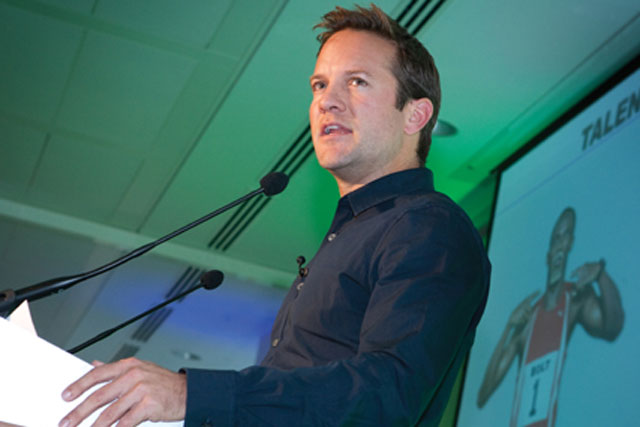
Speaking at , the Virgin Media executive said: "The use of celebrities can be a blessing and a curse, as often it's hard to know if they are promoting their brand or your brand."
Citing Virgin Media's strategy behind its much-trumpeted Usain Bolt campaign, which launched at the start of this year, Larcombe said it had been necessary to be disruptive in advertising its broadband offering, as consumers are generally apathetic towards the product and just see it as a pipe.
"In such a knife-fight of a market, the danger is everything becomes a bundle sale," he said. "Disruption allows us to punctuate the consciousness of consumers in a low interest category.
"Although we weren't an Olympic sponsor, we singed up Bolt, who is the worldwide face of the Olympics, and got it [the campaign] out there first. We can claim some glory for this."
Larcombe explained that unlike rivals BSkyB and BT, a call to action is "a really big deal" for Virgin Media, which does not have as big a marketing budget as its rivals.
A key challenge was also retaining consumer interest until the end of the commercial. He said Bolt's "finger wiggle", pointing to the Virgin Media URL helped it achieve this call to action.
He said the Virgin Media website has had two million visits since the start of the campaign. Meanwhile the number of Facebook fans it had tripled in the first six weeks of the campaign.
While Virgin Media dialled-up the success of the campaign, it has had many of its broadband speeds claims in its and has had a number of them banned by the Advertising Standards Authority.
When questioned whether this was one of the pitfalls of creating a disruptive campaign, Larcombe said that the company did not plan to go into the market to get complaints.
He said: "One of challenges in the technological market, is it's hard to know where the boundaries are when you are pushing the boundaries."
He added that it works closely with its lawyers and takes advice on how to develop the campaigns.
Andrew Morley, UK and Ireland general manager at Motorola Mobility UK, admitted on stage later in the day that Motorola would have "loved" to use Usain Bolt in its advertising. He added that Virgin Media "nailed it in way that non-sponsors didn't manage to achieve".


.jpg)


.jpg)